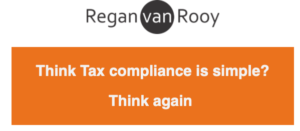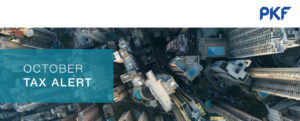Amendment to the definition of “relevant material”26 January 2015 Author: Mike Dingley (Mazars)
Mike Dingley discusses the amendment to the definition of relevant material as an “absolute discretion”. The 2014 Tax Administration Laws Amendment Bill (TALAB) when passed will amend the definition of “relevant material” as contained in section 1 of the Tax Administration Act. The amended definition will read; “relevant material means any information, document or thing that in the opinion of SARS is foreseeably relevant for the administration of a tax Act”; the amendment being the insertion of the underlined words. The draft memorandum on the objects of the TALAB states that the amendment clarifies that the statutory duty to determine the relevance of any information, document or thing for purposes of, for example, a verification or audit, is that of SARS and the term foreseeable relevance does not imply that taxpayers may unilaterally decide relevance and refuse to provide access thereto. SARS is not an individual and as such is not capable of having an opinion. Section 6 of the TAA sets out who may exercise the powers and duties of SARS under the Act. Powers and duties not specifically required by the Act to be exercised by the Commissioner or a senior SARS official may be exercised by a SARS official. Material may be required by SARS for many purposes, therefore one has to look at the empowering provision relating to specific purpose requests to see who is authorised to act under that provision. As the definition presently stands, material requested from a taxpayer by SARS has to be foreseeably relevant for the administration of a tax Act. Section 3 of the TAA sets out what is meant by the term “administration of a tax Act” and describes the actions that fall within the ambit of such administration. The Concise Oxford Dictionary defines “foreseeable” to be when something is reasonably anticipated and “relevant” to be when something bears upon or is closely connected to the matter at hand. In context, foreseeable relevance should mean reasonable anticipation that material requested bears upon or is closely connected to the action to be carried out. SARS says that the test of what is foreseeably relevant for domestic tax application has a fairly low threshold, and its application follows the following broad grounds:
These grounds are much broader than what one would understand from the normal everyday meaning of the words foreseeable and relevance. To provide more clarity SARS will look into issuing guidelines as to what requests for information would reasonably comply with the law and which requests would not and to provide checks and balances for the taxpayer against frivolous or irrelevant information requests. As the meaning of “administration of a tax Act” is central to the definition under discussion section 3 is quoted in full. “Section 3. Administration of tax Acts. (1) SARS is responsible for the administration of this Act under the control or direction of the Commissioner. (2) Administration of a tax Act means to— (a) obtain full information in relation to—
(b) ascertain whether a person has filed or submitted correct returns, information or documents in compliance with the provisions of a tax Act; (c) establish the identity of a person for purposes of determining liability for tax; (d) determine the liability of a person for tax; (e) collect tax debts and refund tax overpaid; ( f ) investigate whether a tax offence has been committed, and, if so—
(g) enforce SARS’ powers and duties under a tax Act to ensure that an obligation imposed by or under a tax Act is complied with; (h) perform any other administrative function necessary to carry out the provisions of a tax Act; and (i) give effect to the obligation of the Republic to provide assistance under an international tax agreement.” In the amendment, the legislature has used the words “in the opinion of”. This confers a discretion upon SARS to make the decision as to what material may be foreseeably relevant in carrying out the administration of an Act. The test which was previously objective has therefore now become a subjective test residing in the mind of a SARS official. If a taxpayer is aggrieved by the request for relevant material, SARS says that there are several internal remedies available. The taxpayer may;
It is submitted that the suggested relief that a taxpayer may obtain from the Tax Ombud and the Public Protector is illusionary as by the time the Ombud or Protector respond the due date for the submission of the material would have passed. What happens if a taxpayer is still aggrieved after exhausting the above internal remedies? The discretion given to SARS has not been made subject to objection and appeal and is therefore an “absolute discretion”. The decision may only be assailed through judicial review. This means that if a taxpayer wanted to challenge SARS on a “relevant material” request, the taxpayer would have to make an application to the High Court to review the request. There is some controversy whether a request for “relevant material” is an administrative action in terms of the Promotion of Administrative Justice Act (“PAJA”). This is a topic which cannot be discussed in this article but an impact of the outcome would be whether the grounds for review would be those set out in section 6 of PAJA or the common law grounds of review. The common law grounds include whether the official carrying out the action acted ultra vires (without authority), with male fides (bad intent), bias or didn’t apply his/her mind. The PAJA grounds are more developed and far reaching. Sections 46, 47 and 48 of the TAA deal specifically with certain types of requests for material and the defined term “relevant material” is used in these sections. Section 46 deals with material required for the purpose of the administration of a tax Act. This would be material foreseeably relevant for a SARS official to be able to undertake the actions as set out in section 3 above. The section states that the request may be made by SARS and except for two instances does not specify that the request must be made by a Senior SARS Official (“SSO”). In terms of section 6 the request may then be made by any SARS Official. The two exceptions are that a SSO may direct that relevant material be given under oath or solemn declaration and a SSO may request relevant material for the purposes of making an estimation. Section 47 provides that a SSO may require a person to produce relevant material in person and section 48 that an SSO or a person authorised by an SSO may require a person to make available, relevant material at the person’s premises for the purposes of an audit or criminal investigation. In considering these sections it is apparent that the term “relevant material” can have different meanings according to the section it is used in and the purpose for which it is requested. A definition is not empowering, but takes its life in the context of the section into which it is inserted. It is also apparent that the SARS Official who may make the request also varies according to the section and purpose. A taxpayer should therefore always request from SARS the section under which a request for “relevant material” is made and the purpose for which it is required. If the section and purpose require an SSO to make the request, the taxpayer should ask for proof of that appointment. With this information the taxpayer could assess whether the SARS official has the necessary authority and whether the material requested is consistent with the purpose for which it is required. A decision can then be made to request relief through internal remedies or to go the route of a judicial review. Without knowledge of the section and purpose the taxpayer would be unable to exercise these rights. In conclusion, it would appear that in the amendment the legislature has not only clarified that it will be a SARS official who will form the opinion as to what material is foreseeably relevant for the administration of a tax Act but has also fundamentally changed the grounds on which the decision may be reviewed. Taxpayers are also warned that if they do not provide the relevant material as requested they may be subject to non-compliance penalties and in certain circumstances criminal prosecution. |
S.Africa: Amendment to the definition of “relevant material”
More from AfricaMore posts in Africa »
- Protected: SAIT TP Summit I/I/T/F Document Download
- TANZANIA: Licensing of Tax Consultants – A clog/fetter to taxpayer’s right to representation?
- SOUTH AFRICA: Think Tax compliance is simple? Think again (PART 2)
- SOUTH AFRICA: Replacement of IT14SD forms – New SARS Verification Process
- NIGERIA: VAT and the Reverse Charge Mechanism in Nigeria
More from SADCMore posts in SADC »
- Protected: SAIT TP Summit I/I/T/F Document Download
- SOUTH AFRICA: Think Tax compliance is simple? Think again (PART 2)
- SOUTH AFRICA: Replacement of IT14SD forms – New SARS Verification Process
- Mozambique – Mandatory Social Security Pardon of Fines and Reduction of Interests
- Think Tax compliance is simple? Think again
More from South AfricaMore posts in South Africa »
- Protected: SAIT TP Summit I/I/T/F Document Download
- SOUTH AFRICA: Think Tax compliance is simple? Think again (PART 2)
- SOUTH AFRICA: Replacement of IT14SD forms – New SARS Verification Process
- Think Tax compliance is simple? Think again
- So is a foreign pension trust not actually a trust? (South African Tax)






